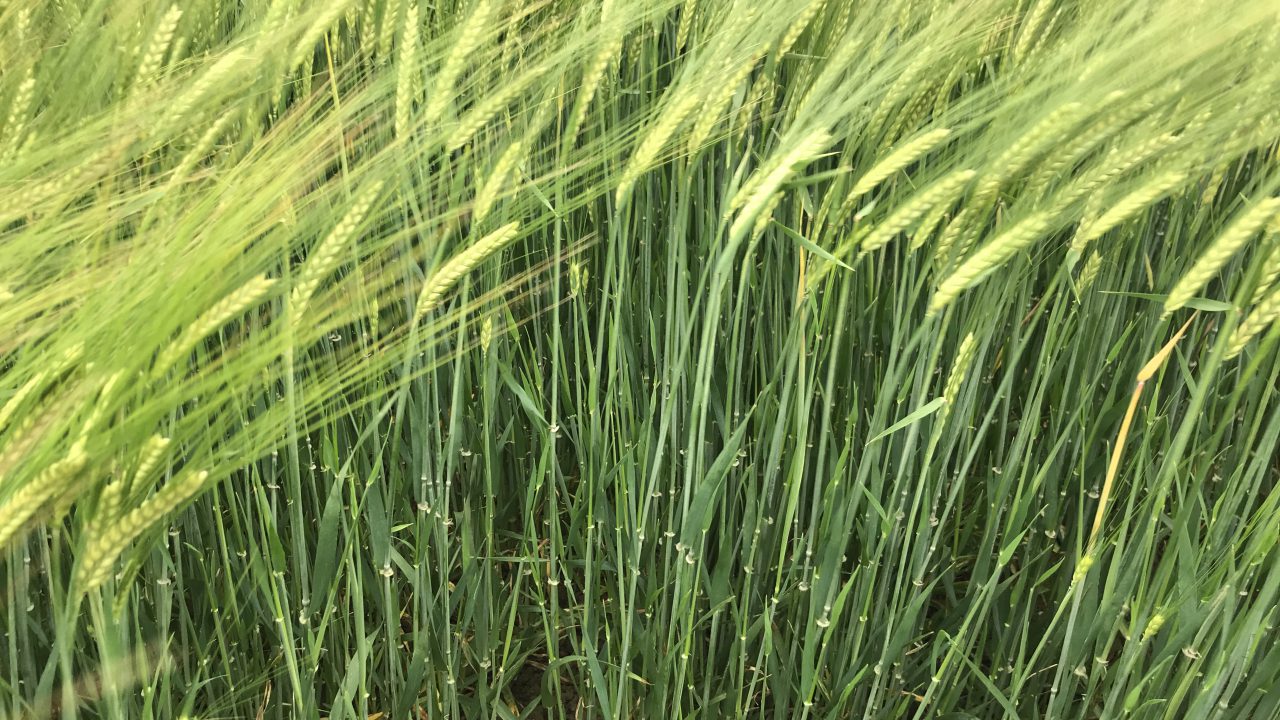Teagasc is confirming that Barley Yellow Dwarf Virus (BYDV) is now impacting many spring barley crops across the country.
But while symptoms are apparent, only very small percentages of plants seem to be affected.
For the most part, spring barley crops are now in the growth stage (GS) 31 to 39.
Teagasc is advising that crops are, generally, very thick, following good establishment and excellent growing conditions.
Weather conditions
Disease levels are relatively low but rhynchosporium and net blotch are present at low levels especially in plants.
Fungicide application has been delayed due to the recent wet and windy conditions. As a consequence, some crops have yet to be sprayed.
Crops of winter wheat are at now at the booting stage with most having received their flag leaf fungicides in the last week.
Again, growers found spraying conditions tricky in the past week but were able to take advantage of any opportunities that were available.
Teagasc is confirming that control of septoria is satisfactory, to date, where the top three leaves are still free of disease.
Key times
According to advisors, good fungicide timings at leaf three and flag leaf, in addition to relatively short spray intervals has been a contributing factor in the attainment of good disease control. Yellow rust is not a significant problem this year.
There is a large range in growth stages of beans this season due to the prolonged sowing period that started in November and continued until early April.
November and January beans are well into flowering while later-sown crops are at the start of flowering. Disease pressure is high in autumn/early spring-sown beans where both chocolate spot and downy mildew are present.
As is the case with cereals, crop establishment has been excellent. This has resulted in high plant populations, which has increased disease pressure.
Potato crops
Most potato crops have now emerged and have received their herbicide application.
According to Teagasc, the damp conditions should help the efficacy of the residual products. Many potato crops are at the rosette stage, or should be over the coming days, and will need their first blight fungicide.
Meanwhile, planting of potato crops in Northern Ireland has been held due to recent heavy rains. However, weather and ground conditions are set to improve over the coming days.
Winter oilseed rape crops have now dropped all petals and are at the seed filling stage.
Other crops
For the most part crops look to have very good potential. Most received a schlerotinia fungicide application during flowering.
Fodder beet crops are at a range of growth stages. Early sown crops now have 10 to 12 leaves.
Teagasc is confirming, that weed control is well underway with advanced crops already having received two herbicide applications.
There are a few reports of pest damage with damage from mangold fly most common.
Maize growers are confirming that establishment rates are excellent this year. Weed control for maize in the open will be the priority as crops reach the 4-6 leaf stage.
